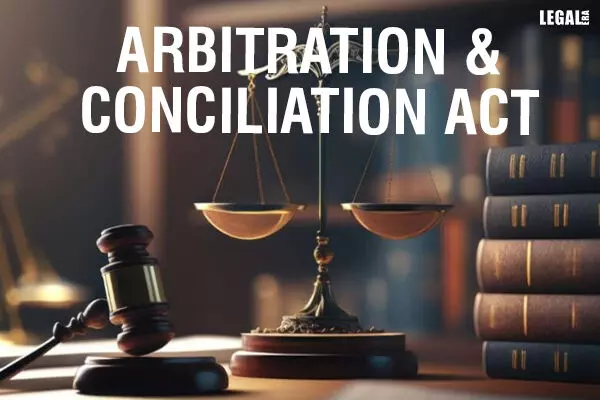- Home
- News
- Articles+
- Aerospace
- AI
- Agriculture
- Alternate Dispute Resolution
- Arbitration & Mediation
- Banking and Finance
- Bankruptcy
- Book Review
- Bribery & Corruption
- Commercial Litigation
- Competition Law
- Conference Reports
- Consumer Products
- Contract
- Corporate Governance
- Corporate Law
- Covid-19
- Cryptocurrency
- Cybersecurity
- Data Protection
- Defence
- Digital Economy
- E-commerce
- Employment Law
- Energy and Natural Resources
- Entertainment and Sports Law
- Environmental Law
- ESG
- FDI
- Food and Beverage
- Gaming
- Health Care
- IBC Diaries
- In Focus
- Inclusion & Diversity
- Insurance Law
- Intellectual Property
- International Law
- IP & Tech Era
- Know the Law
- Labour Laws
- Law & Policy and Regulation
- Litigation
- Litigation Funding
- Manufacturing
- Mergers & Acquisitions
- NFTs
- Privacy
- Private Equity
- Project Finance
- Real Estate
- Risk and Compliance
- Student Corner
- Take On Board
- Tax
- Technology Media and Telecom
- Tributes
- Viewpoint
- Zoom In
- Law Firms
- In-House
- Rankings
- E-Magazine
- Legal Era TV
- Events
- News
- Articles
- Aerospace
- AI
- Agriculture
- Alternate Dispute Resolution
- Arbitration & Mediation
- Banking and Finance
- Bankruptcy
- Book Review
- Bribery & Corruption
- Commercial Litigation
- Competition Law
- Conference Reports
- Consumer Products
- Contract
- Corporate Governance
- Corporate Law
- Covid-19
- Cryptocurrency
- Cybersecurity
- Data Protection
- Defence
- Digital Economy
- E-commerce
- Employment Law
- Energy and Natural Resources
- Entertainment and Sports Law
- Environmental Law
- ESG
- FDI
- Food and Beverage
- Gaming
- Health Care
- IBC Diaries
- In Focus
- Inclusion & Diversity
- Insurance Law
- Intellectual Property
- International Law
- IP & Tech Era
- Know the Law
- Labour Laws
- Law & Policy and Regulation
- Litigation
- Litigation Funding
- Manufacturing
- Mergers & Acquisitions
- NFTs
- Privacy
- Private Equity
- Project Finance
- Real Estate
- Risk and Compliance
- Student Corner
- Take On Board
- Tax
- Technology Media and Telecom
- Tributes
- Viewpoint
- Zoom In
- Law Firms
- In-House
- Rankings
- E-Magazine
- Legal Era TV
- Events
Delhi High Court: Party that fails to submit written submissions within the designated time forfeit their right to file a Section 8 petition under the Arbitration and Conciliation Act.

Delhi High Court: Party that fails to submit written submissions within the designated time forfeit their right to file a Section 8 petition under the Arbitration and Conciliation Act.
The bench of Justices Vibhu Bakhru and Tara Vitasta Ganju of the Delhi High Court ruled that once a party has filed a written statement in a civil suit, it relinquishes its right to submit an application under Section 8 of the Arbitration and Conciliation Act, 1996.
In April 2022, Respondent Surender Singh Sethi initiated a civil suit against Appellant Ranjana Bhasin in the Commercial Court, focusing on account reconciliation, debt recovery, and interest claims. Summons for the suit were issued to the appellant in May 2022, but she refused them, resulting in deemed service. Despite engaging legal representation and filing a memo of appearance before the Commercial Court in June 2022, the court closed the window for the petitioner to submit written arguments, proceeding ex parte against her.
Following this, the appellant submitted an application under Section 8(1) of the Arbitration and Conciliation Act, 1996, requesting that the parties be directed to arbitration. However, the Commercial Court dismissed the application. Dissatisfied with this ruling, the appellant filed an appeal before the Delhi High Court, challenging the decision of the Commercial Court.
The appellant contended that, though she refused the service of summons, she didn’t have access to the complaint and associated documents. As a result, the timeframe for submitting written submissions and an application under Section 8 of the Arbitration Act should begin from the moment of meaningful service.
The High Court dismissed the argument put forth by the appellant, emphasizing that the refusal of summons by the appellant resulted in deeming it as served. Additionally, it stated that the appellant's application under Section 8 of the Arbitration Act was submitted more than three months after receiving the complaint and accompanying documents.
As a result, the High Court found no deficiency in the Commercial Court's decision to reject the appellant's application under Section 8(1) of the Arbitration Act and consequently dismissed the appeal.
Case Title: Ranjana Bhasin v. Surender Singh Sethi & Ors.


